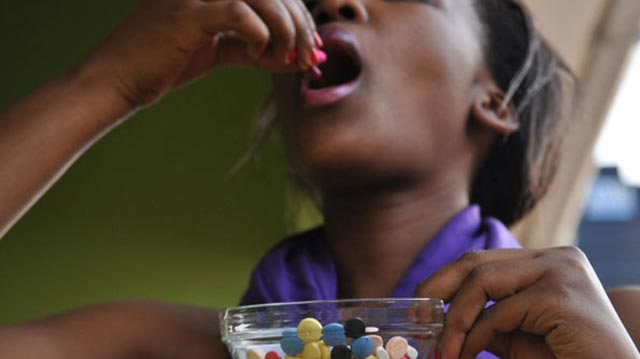BY DAMILOLA AKINYEMI
About a month ago, the news about some youths in Lesotho, a country in Southern Africa, who started a practice of injecting themselves with the blood of another person who is high on drugs, went viral. While the practice is condemnable and even poses a health risk, a critical look at it raises the question of why? What is really the cause of drug addiction among youths and even teenagers?
The issue of drug addiction and its abuse is a global issue, and Africa is not exempt. Research was conducted by the African Institute of Mathematical Sciences among undergraduates, and the results showed that 78.0% of those who had used substances were introduced to the vice by friends. In comparison, 6.7% were introduced to it by their parents/family members. The research also showed that peer pressure (73.7%) and curiosity were the highest influencing factors for the use of substances among the students. They also found out that the respondents who abused the various substances had their first use of substances at ages less than 14 years.
While there are many ways to look at this, my focus is on the highest influencing factor causing this drug abuse – peer pressure.
The importance of influence, especially on young minds, cannot be overemphasised. Children’s minds are constantly absorbing information and experiences from their surroundings, making them vulnerable to both positive and negative influences. However, in order not to leave children’s influence to chance, parents and guardians must take an active role in instilling good values and a strong sense of identity in their children from an early age.
Advertisement
By laying a solid foundation at home, children are better equipped to recognise and choose positive influences when they interact with others. This foundation also shapes their peer choices and helps them develop a moral compass that guides their decisions. When children are taught well at home, they’re more likely to turn to their parents or guardians if they encounter something that doesn’t feel right.
Ultimately, influence should start from within the home, with parents and guardians setting the tone for their children’s values and beliefs. External influences should then reinforce these values, rather than trying to shape them from scratch. By prioritising positive impact from the inside out, we can help young people develop into confident, capable, and compassionate individuals.
In an attempt to address the growing issue of drug abuse and addiction among young Nigerians, the Federal Government of Nigeria has announced the launch of two significant education sector reforms – mandatory drug testing for college students and the inclusion of drug education in secondary and primary school curricula. This will be done in partnership with the National Drug Law Enforcement Agency (NDLEA). This is a significant improvement as it shifts focus from preventive measures to take.
Advertisement
However, the most effective preventive measure starts at home. While government policies can provide support, it’s parents and guardians who play the most crucial role in influencing their children’s lives. Educators should work together with parents to ensure that young minds are positively influenced. If parents aren’t actively shaping their children’s values and worldview, others may fill that void, and it may not always be with positive intentions.
In today’s world, it’s more important than ever for parents to be proactive in influencing their children’s lives. By being a source of positive guidance and support, parents can help their kids develop into confident, capable, and compassionate individuals. The message is clear: if you’re not influencing your child, someone else will.
Views expressed by contributors are strictly personal and not of TheCable.
